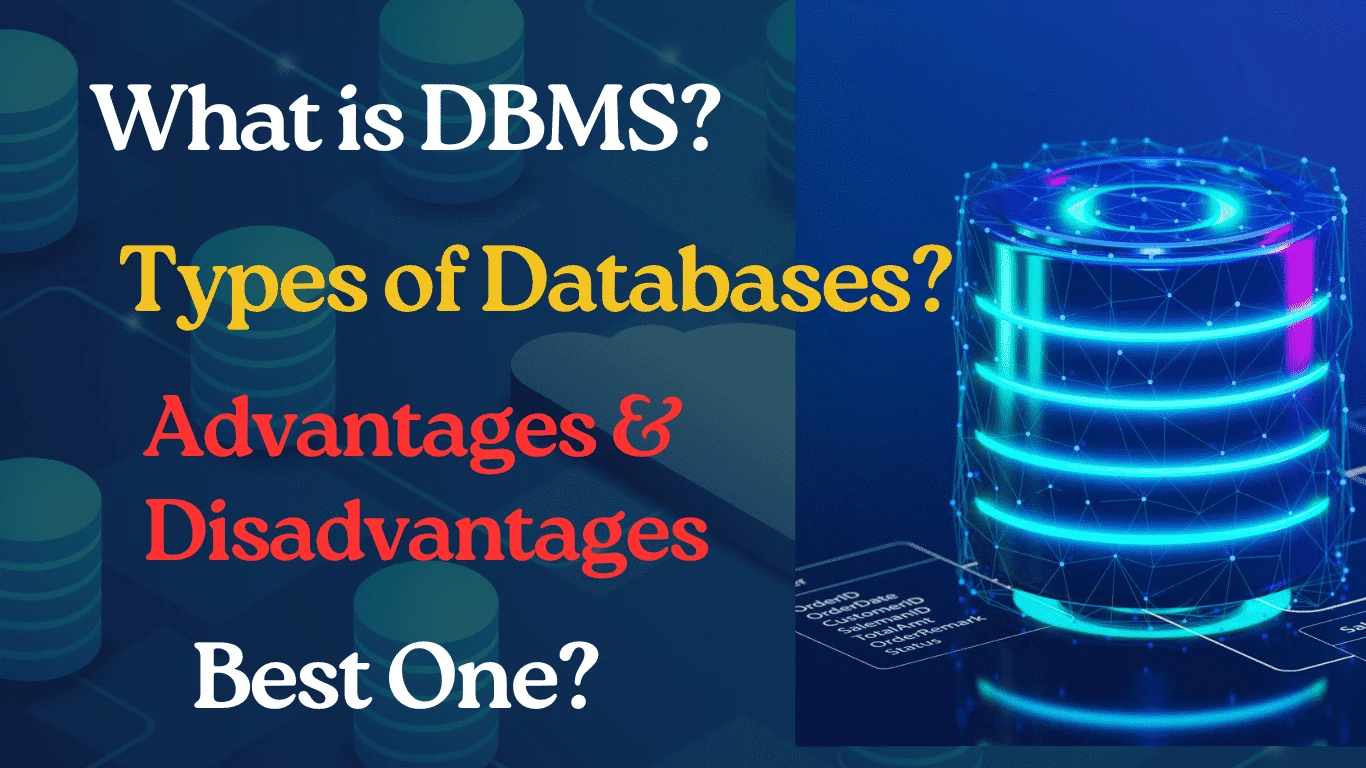Choosing the Right DBMS in 2024: A Comprehensive Guide for Beginners | FTC filestoconvert

Description:
Explore the world of Database Management Systems (DBMS) in 2024. Learn about the types of DBMS, their advantages and disadvantages, and how to choose the best system for your needs. Discover free options, best practices, and key considerations for both beginners and small businesses.
In today's digital age, managing and organizing data efficiently is paramount. Enter the world of Database Management Systems (DBMS), software designed to handle this task with ease and precision. If you're new to DBMS or looking to update your knowledge, you're in the right place!
Understanding DBMS
A Database Management System (DBMS) acts as a sophisticated software solution, engineered to streamline and organize data in a methodical manner. Think of it as a sophisticated filing system for your digital data. Here's what a DBMS enables you to do:
1. Store and Retrieve Data: The core function of any database system. Effectively store and retrieve the information you require.
2. Data Manipulation: Add new data, modify existing information, or remove irrelevant data with ease.
3. Data Organization: Structure your data in a logical manner that suits your requirements.
4. Security and Access Control: Ensure data safety by controlling who can access it and what actions they can perform.
5. Querying: Interact with your data by asking specific questions and retrieving relevant information.
Types of DBMS in 2024
Relational Databases (RDBMS)
Advantages:
1. Structured data format
2. Strong data integrity
3. ACID compliance for data consistency
4. Familiar SQL querying
Popular Choices: MySQL, PostgreSQL, Microsoft SQL Server
NoSQL Databases
Advantages:
1. Scalability and flexibility
2. Faster performance for specific use cases
3. Ideal for managing extensive datasets and varied data types.
Popular Choices: MongoDB, Redis, Cassandra
Choosing the Right DBMS: Key Considerations
For Small Businesses
If you're a small business owner, free database software or open-source options like MySQL or PostgreSQL can be cost-effective and efficient solutions. These are user-friendly and offer robust features suitable for business operations.
For Beginners
New to the world of databases? Consider starting with document-oriented databases like MongoDB or NoSQL databases designed for simple applications. These platforms often offer comprehensive tutorials and resources to get you started.
For Personal Use
If you're managing personal data, embeddable database solutions or database management for personal use can be tailored to meet individual needs without the complexity of enterprise-level systems.
Best Practices and Additional Resources
1. Database Security: Always follow database security best practices to protect your data.
2. Performance Optimization: Implement database performance optimization techniques to enhance system efficiency.
3. Data Migration and Backup: Understand data migration between databases and database backup and recovery strategies for seamless operations.
Conclusion
Selecting the appropriate Database Management System (DBMS) is essential for efficient data management. Whether you're a small business, a beginner, or managing personal data, understanding your requirements and exploring the available options is essential. With a plethora of choices like MySQL, PostgreSQL, MongoDB, and more, finding the perfect fit is easier than ever.
For those interested in diving deeper, there are numerous free database courses online and tutorials available. Whether you're looking to learn SQL query language, explore NoSQL database benefits, or understand database design principles, the resources are endless.
Remember, the best DBMS is the one that aligns with your specific needs, offering scalability, security, and performance. So, invest time in exploring the options to make a well-informed decision.